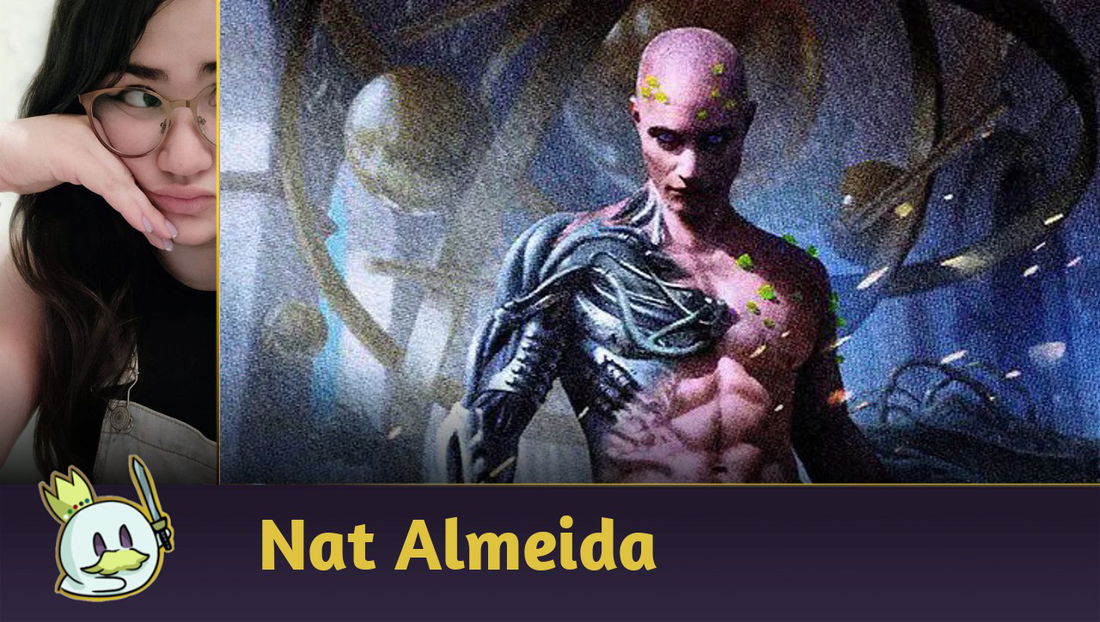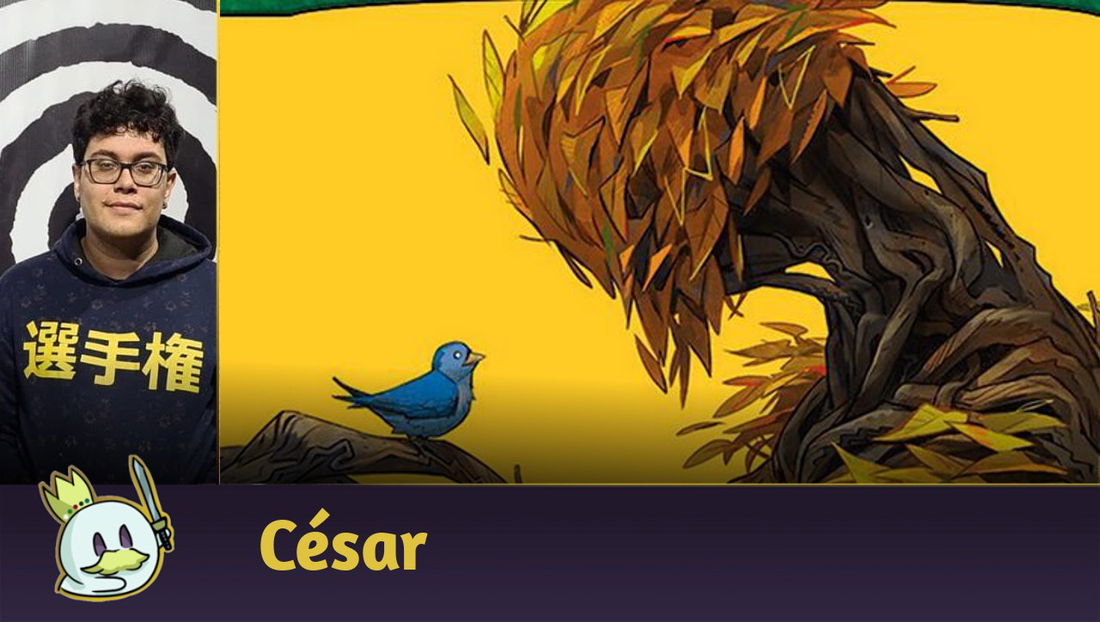Magic is approaching the next announcement of Banned and Restricted for competitive formats, which will take place on August 26 and promises specific changes at least for Modern and Legacy, where the lack of preventive actions by Wizards led to a major backlash from their communities, especially in Modern, where a season of RCQs was starting.
But the date is set and, as we get closer to it, we can better assess which cards might be banned and/or which formats need bans. In this article, we share our thoughts on what to expect in the next announcement.
Ad
Standard
The new Standard season is quite diverse, although the current numbers point to a higher representation of Domain Ramp and Golgari Midrange in these first weeks with Bloomburrrow.
The growth of two or three decks to over 10% representation in the Metagame is a common trend in Standard, where these numbers can reach up to 20% and still have a diverse environment. This is the case with the format today: Orzhov Midrange, Gruul Aggro and Boros Convoke also solidified themselves as the main competitors in the first round of Challenges and, in the second week, we saw an increase in archetypes trying to respond to the Meta and succeeding, another sign of a healthy format.
At this moment, Standard is an example of what the ideal format would be: there are the best decks because, after all, it is a competitive environment, but there is a great diversity of proposals and archetypes available at the top of the Metagame, and with plenty of room for innovation in the gaps left by the Tier 1.

Atraxa, Grand Unifier is probably the riskiest card in the Metagame right now. Resolving an Atraxa too early can win the game all by itself, and Standard is no exception - but there is no way to make this play today that isn't easily countered by Rest in Peace and other hates, and its presence in Standard allows for the success of an archetype that often suffers from a lack of payoffs in rotating formats.
If we ever start seeing the Phyrexian Angel in play on the third or fourth turn, it's very likely that some enabler will be to blame and that card - and only that card - will have to be banned.
Pioneer
There is no other word to describe the Pioneer Metagame today other than “bad”. The format hasn't changed significantly since Murders at Karlov Manor, where one archetype consolidated itself as the best deck in the format and remains there, with 25 to 30% share in the Metagame: Rakdos Vampires
It's common for Midrange or Tempo lists to be at the top of the format: it's no surprise that Rakdos Midrange and Izzet Phoenix have held that spot for a long time, but having them in that space means that any slightly more powerful addition turns them from “best deck” to “overpowered” - Vein Ripper and its combination with Sorin, Imperious Bloodlord caused this effect in Rakdos Midrange by giving an already consolidated archetype a potential “combo kill”.

Vein Ripper doesn't literally win the moment it comes into play, but it's very challenging to get off the board in a deck that already interacts with creatures and the opponent's hand by nature, and the life gain every turn it's in play seals the fate of the matchup the moment we untap with it. It's a powerful 6-drop, as it should be - but it's not one we should need to counter on turn three and with very specific answers as exemplified by the Temur Phoenix lists, with a 
Ad

Sorin, Imperious Bloodlord is the combo enabler and a bit more: it benefits players who run vampires - easy when we have Bloodtithe Harvester and Preacher of the Schism - and it slows down the clock for any Aggro player in the format. After all, what Aggro can handle 3 to 7 life gain every turn, not to mention the Planeswalker's Lightning Helix ability that turns any vampire (Mutavault included) into removal?
If Vein Ripper is banned, other high-cost vampires with good abilities will eventually show up and put the archetype back in an oppressive state, so it's likely that Sorin, Imperious Bloodlord will have to be banned to fix one of the unbalanced edges of the Pioneer Metagame.
The other problem with the format also involves a vampire.

Amalia Benavides Aguirre stars in an infinite combo with Wildgrowth Walker in the deck that bears her name and is the second most played in Pioneer today. While her numbers are less of an issue than Rakdos Vampires, her strategy has problems with gameplay patterns and restrictions imposed on other archetypes.
Abzan Amalia is, at core, a lifegain deck with a combo around it. Usually, fast and aggressive archetypes already have problems dealing with this theme to the point that Selesnya Angel is a good answer in Aggro environments, but loses a lot of value when facing Midrange and Control - Amalia doesn't have this problem: her toolbox nature allows playing against all macro-archetypes relatively well and always threatens to win the game suddenly with a Chord of Calling or Return to the Ranks.

Another, even more notorious problem with Abzan Amalia is its potential to lock games: Amalia Benavides Aguirre and Wildgrowth Walker only stop the loop when she reaches 20 power and destroys all other creatures - if a player gives indestructible to Walker, the loop continues indefinitely, forcing a draw.
The deck itself plays one or two copies of Selfless Savior for this occasional purpose, and as we witnessed even in the semifinals of Pro Tour Murders at Karlov Manor, this “Lock” can be used against Amalia’s owner as well: Loran’s Escape or any other effect that grants indestructible to any creature at instant-speed prevents the combo from winning the game as many times as necessary.
These situations create problems everywhere and at all tournament levels, they are a logistical hell in the RCQ season, and there is no definitive solution since the only solution other than a ban or errata on Amalia Benavides Aguirre to make her trigger a “may” instead of a “must” - and in that case, given the limitations she imposes on the format’s diversity, it is better for Pioneer if she is banned.
Modern
We saw above how Abzan Amalia has caused logistical problems in Pioneer because it mixes the nature of a toolbox combo with infinite loops that can cause intentional draws, but what if instead of draws, the best deck in the format created situations that are miserable to watch or play against?
Ad
The Bant Nadu is this deck, and it has led to the most severe complaints the Modern community has had about the format since the banning of Bridge from Below. Its key card, Nadu, Winged Wisdom was the main target of controversy in Modern Horizons 3 and its results in Pro Tour MH3, where it had a giant target on its back and still put five copies in the Top 8, only proves its potential to break the format.
But Nadu's problem goes beyond its power level: it has many triggers and the need to keep tracking of everything that is happening with many permanents in play, and it is also an inconclusive combo that does not generate infinite loops because everything depends on what Nadu reveals at the top: in some cases, it is necessary to reveal the entire deck - card by card - to then win the game with Thassa's Oracle.

The complicated board states and the time that games take with one player doing everything alone while the other waits for the entire combo to resolve searching for a misplay- or concedes to save time - make for very unpleasant moments to watch while playing and/or watching a live stream of a major event.
Nadu is likely to be the main card banned on August 26th and any other option besides him will be a problem in the long run: there is a design mistake in letting his ability trigger per creature, twice per turn. If they ban Shuko and/or Outrider en-kor, players will try to break the card with Puresteel Paladin or any other free and/or cheap effect that targets - and they will probably succeed.
It remains to be seen whether Nadu, Winged Wisdom is the only card requiring bans on August 26: Modern today is a format where players try to make their absurd play before their opponents make their absurd plays. Whether it's with a Big Mana like Eldrazi Tron or Amulet Titan, in a combo with Through the Breach, or in a fair deck with Necrodominance, or just holding the game indefinitely with Teferi, Time Raveler - what all of these strategies have in common is that The One Ring is essential to them.

As I've mentioned in other articles, The One Ring is a pseudo-mix of Time Walk and Ancestral Recall in a four-mana artifact, and its two abilities work perfectly for the scenario that Modern finds itself in today: winning a turn with protection means that several archetypes can't establish an advantage against you and/or win the game, and the "draw 3" of the two activations means that you will look for more resources to resolve the game and/or win with a combo or absurd play.
And since this artifact is legendary, its "drawback" is mitigated by finding another copy, in addition to the various interactions with bounces and other effects. In short, the artifact does too much and promotes non-interactive game plans, taking away the reach of Aggro and other decks that, in theory, serve to keep them in check.
From this perspective, it is possible that The One Ring might be banned, but the other side of the scope should also be considered: Boros Energy and its other variants are already one of the best decks in the format today and the main Aggro in the MH3 Metagame, with numbers almost as high as Bant Nadu if we aggregate all its variants - in this case, The One Ring may be the necessary evil for other decks to deal with Boros Energy and other faster strategies and, thus, exist in the format.
Ad
Today, the artifact is somewhere in between these two sides: Necrodominance and Jeskai Control are already decks that easily respond to Aggro if they make the right changes to their maindeck and/or sideboard, but other strategies can't afford to use more cards for this purpose and are therefore more reliant on The One Ring.
Legacy
To think that we would see Reanimator go from the fastest consistent combo in Legacy to a Midrange/Tempo with a combo-kill.
The “Scam” package with Grief fit Reanimator so well that it basically turned the deck into a “Delverless Delver”, where the one-drop of choice is a 3/2 with Menace that removes the two most important cards from the opponent's hand - and this 3/2 has already caused enough problems.

Grief is too strong for Legacy because, unlike other formats, the problem here is not “a fair deck with a combo-kill”, but a “combo deck with an attrition plan”, and its combination with Reanimate and Animate Dead added to the already famous target package for Entomb created a proposal that went beyond the limits of what is acceptable in the format.
Even without Grief, however, it is likely that Reanimator will never go back to being just a combo as long as there are other good enablers, including one that, naturally, fits into Tempo lists and also demands attention.

Psychic Frog is an odd middle ground between Cold-Eyed Selkie that saw little play in Legacy and more impactful and banned cards from the format like Dreadhorde Arcanist. It doesn't offer free spells or free mana, but it's easy to get it out of the Lightning Bolt zone while using it to put creatures to reanimate in the graveyard or, in other archetypes, speed up Dragon's Rage Channeler's Delirium or Murktide Regent's casting.
These cards have a troublesome history in Legacy, and while unlikely in this update, it wouldn't be surprising if Psychic Frog ends up banned in the future.
Pauper
Pauper is undergoing a slow transformation: while red and Affinity decks remain the format's main competitors, they are now joined by two new strategies enabled by Modern Horizons 3 - Gruul Ramp and the most famous among them, Broodscale Combo
This strategy aims to use Basking Broodscale's ability with Sadistic Glee's trigger to create infinite tokens and infinite ETB and LTB triggers, in addition to giving infinite power to its key creature and dealing infinite damage if you have a payoff like Nadier's Nightblade - it tries to do a lot, and ends up doing everything very well and protecting itself decently.

The combo has been showing notable results in the Metagame and has grown recently, but it seems too early to say that it is breaking the format, and any ban on one of its pieces would be more of a preventive measure to avoid another out-of-date announcement in the future.
Conclusion
Ad
That's all for today!
If you have any questions or suggestions, feel free to leave a comment!
Thanks for reading!








— 评论0
成为第一个发表评论的人